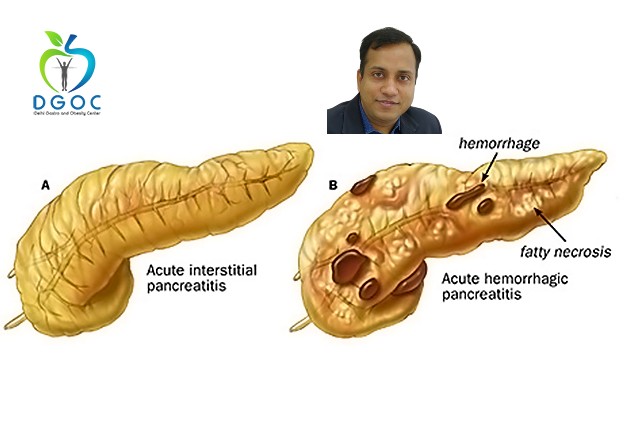The pancreas is an organ in the body that plays a key role in food digestion and blood sugar control. For healthy digestion, it’s vital to take a healthy diet which can contribute to maintaining the health of pancreas. At the same time, a problem in the pancreas can disturb the other bodily functions. If the pancreas is not able to produce digestive enzymes then food would not be absorbed properly, which can often lead to diarrhoea or weight loss.

Here are some of the common disorders of the pancreas:
Pancreatitis
Pancreatitis is a condition where the pancreas gets inflamed due to various reasons like a blockage in the pancreatic duct. As a result, the pancreatic juice starts accumulating in the pancreas, digesting the tissues in it.
Therefore, people with symptoms are recommended to check with a pancreas specialist at a renowned medical facility as Sir Ganga Ram hospital in Delhi as soon as possible. This will help in preventing any complication further.
For a more precise understanding of the issue, here are the three types of pancreatitis which can lead to complications if left unchecked:
Acute Pancreatitis: It is a sudden attack causing inflammation of the pancreas. It may also cause acute upper abdominal pain. The pain may last for several days. The other symptoms of the disease may include vomiting, nausea, bloating, fever and diarrhoea. Some of the causes of acute pancreatitis may include gallstones, alcohol consumption, trauma, infections, hereditary conditions and some unknown causes.
Chronic Pancreatitis: It’s a progressive disorder that can lead to permanent damage to the pancreas. Some of the regular symptoms are upper abdominal pain and diarrhoea. Gradually patients may develop malnutrition and weight loss. The main genesis of chronic pancreatitis is alcohol consumption, cystic fibrosis and other hereditary disorders.
Hereditary Pancreatitis: It is related to some inherited abnormalities of the intestine or pancreas. Hereditary pancreatitis is a progressive disorder with a high risk of permanent issues. Some of the major symptoms of hereditary pancreatitis are malnutrition, chronic pain in the upper abdomen, diarrhoea, or diabetes.
Diabetes
When the pancreas fails to produce enough insulin it can lead to diabetes. Some of the related symptoms are fatigue, frequent urination, excessive hunger or thirst.
Pancreatic Cancer
Certain conditions with pancreas may often lead to the development of cancer. The symptoms may include pain in the upper abdomen, jaundice, and weight loss. Some of the risk factors in this ailment are alcohol and smoking.
It is recommended that a Pancreas specialist Ganga ram hospital is consulted as soon as appearance of symptoms to prevent further complications.












